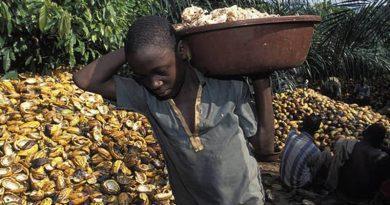Global Rating Agency, Moody’s, predicts brighter days ahead for Nigerian banks
The GLOBAL rating agency, Moody’s Investors Service has projected a brighter future for the Nigerian banks, citing rising oil prices and a more liberal foreign exchange policy of the Central Bank of Nigeria.
In a report published last week, the agency stated,”The outlook for the Nigerian banks remains stable as banks’ foreign currency liquidity risks moderate due to rising oil prices and a more liberal foreign exchange policy, says Moody’s Investors Service.”
The report, “Banking System Outlook — Nigeria; Liquidity risks have eased but earnings pressure and loan quality risks remain” is available on the agency’s website.
The report quoted Akin Majekodunmi a Vice President and Senior Credit Officer, at Moody’s as saying that operating conditions for Nigerian banks will continue to gradually improve over the next 12 to 18 months, but remain challenging.
Moody’s forecasts a recovery in real GDP growth over the next two years, up from 0.8per cent last year, helping lending growth rise to around 10per cent after a 15.4 per cent contraction in 2017.
It, however, noted that Nigerian banks’ profitability will decline on account of lower yields on government securities, as well as a likely reduction in income from derivatives.
But, these pressures will be partially offset by a recovery in loan growth and transaction income from the expansion of digital platforms, the agency said.
Meanwhile, nonperforming loans and associated provisions in the banking system will increase marginally in a delayed response to the sluggish economic growth experienced last year, and Moody’s expects them to range between 15.5per cent and 18 per cent of gross loans over the outlook period.
On the other hand, despite the stabilization in banks’ foreign currency funding and liquidity profiles, Moody’s expects bank earnings to come under pressure. Capital metrics will also decline marginally over the 12 to 18 month outlook period. Additionally, asset quality will remain weak, but a further deterioration in loan performance will be marginal as operating conditions slowly improve it further stated.
“Nigeria’s growth prospects remain vulnerable to global oil prices, as crude oil will remain the nation’s largest export commodity and its main generator of foreign currency for the foreseeable future,” the report read in part.
By Chima Nwokeji, Nigerian Tribune




